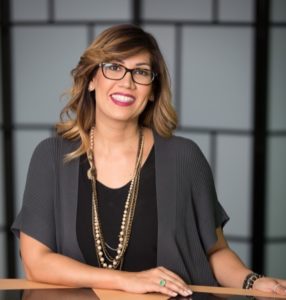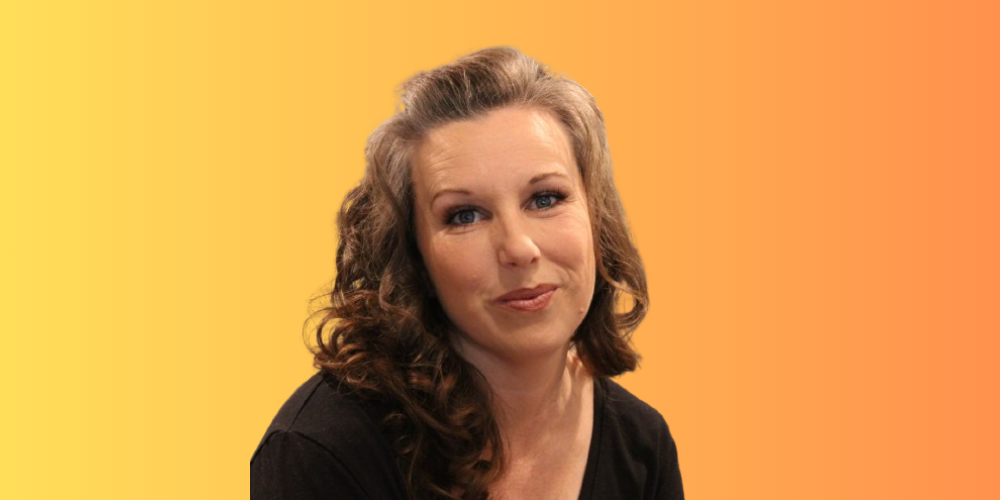Raj Girn: This week’s theme is mindset and clarity, with a two-part series called Proven Strategies that remove limiting beliefs and allow you to step into your full potential. I’ve chosen to do a deep dive this week into the concept of limiting beliefs because I found that many of our clients face this in some capacity or other. And in some cases it’s been due to a historical experience that has had a negative impact on them and that they have held onto because they haven’t known how to get past it.
My guest this week is Dr. Monika Vermani, who is a clinical psychologist specializing in, among other things, trauma, abuse, mood, anxiety and addictions as she offers crisis management and self-esteem and assertiveness enhancement techniques as part of her tried and tested strategies. Please welcome to the show a long time friend of mine and colleague, Dr. Monica Vermani.
Here is Part One of our conversation:

Raj Girn: Please welcome to the show a long time friend of mine and colleague, Dr. Monica Vermani.
Dr. Monica Vermani: Thank you. I appreciate your time and efforts to bring this beautiful show together. Thank you.
Thank you so much, my love, and thank you so much for agreeing to be on this show. I’ve been looking forward to tackling this specific subject matter with you. So, Monica, although there are a whole host of other topics that I can broach with you, which, you know, I’m going to bring you back on every now and again so that we can deep dive each of them that specifically relate to the professional arena. Today what I want to do is I want to tackle this specific challenge of limiting beliefs, holding people back from reaching their full potential because it’s so common among entrepreneurs and executives, as you know, in your practice as well.
So a deeper understanding, I feel, was something that I wanted to have with you to figure out how to handle limiting beliefs that have an impact on our career trajectory. And I want to be able to unpack this in order to help people move past it if this is something that keeps holding them back from moving forward in their careers. So my first question for you, Monica, is what is this kitschy concept that pop culture calls limiting beliefs?

Credit: IN@drmonicavermani
So limiting beliefs are basically that — they’re thoughts that are held by us as a belief systems that tends to hold you back in life somehow. They set you back in your careers and your family lives and your relationships. Where do they come from? They come from, many times, our blueprint, our backgrounds, our family upbringing, values, systems, community culture. And so many times we hold on to these belief systems with an emotional tie. And the emotional tie comes with circumstances, traumas, painful experiences. And so many times these belief systems hold us back because they also come with a negative emotion and then they tend to affect you in your day-to-day life.
“Limiting beliefs are basically that — they’re thoughts that are held by us as belief systems that tend to hold you back in life somehow.” ~Dr. Monica Vermani
Right. So just so that we’re very clear on this, why is it potentially harmful to hold onto limiting beliefs?
They are harmful because they hold you back. They hold you back from work, social intimacy, self care, spirituality. They tend to impose limitations as you don’t take risks to go out there and go beyond your comfort zone to see if those thoughts are true or not. Many times the limiting beliefs are coming from places that are not necessarily true, or at least not true for you. Once upon a time, maybe this belief system that you hold onto came from a parent that in their society or their time, it worked for them.
But in today’s system, it’s not working for you. And so many times we don’t realize that some of the limiting beliefs that maybe in the younger age work for you, but now you as an adult in a career world or in relationships, they’re just not working as effectively for you as limiting beliefs tend to do that. They set you back and hold you back, but they do it because of not truth, but more emotions and feelings that come with the thought system that you believe that you need to hold on to for some reason or another.
Right. So let me ask you this. Let’s break this down a little bit for people, because oftentimes we think to ourselves, “No, no, this is not something that I’m going through” until we hear a little bit more about what it is. So let’s go then. Monica, are there varying stages of this that people go through, that you can share from your professional experience, so that everyone watching, listening and reading this can be aware of the signs and symptoms either in themselves or in others? Because as I mentioned off the top of this, oftentimes we don’t know that this is something that we are challenged with because we don’t recognize or identify with having this as an issue.
Great question. When it comes to limiting beliefs they have varying degrees, meaning sometimes it’s a tip of the iceberg. It’s something small, like you have a fear of driving, you’re feeling nervous driving. And then with practice in time, you tend to encourage yourself to get over the fear of driving and start to drive. And then other times you might have limiting beliefs of I’m not smart enough, which is a little bit deeper. And those thoughts can limit your career advancement, your ability to take risks in life that might help you live up to your true potential. And so when you say varying degrees, there’s varying degrees of the intensity of the thought and how it affects you. Our thoughts always affect our moods and our physical symptoms and our emotions as well as our behaviours that have consequences.

And so it’s important to realize that you can ignore a small thought, but in time, the volume of that thought will get louder and louder and louder and cause more physical, emotional consequences in life that at some point or another, the stages of your symptoms will get you to a place where it’s a catalyst for change. So most suffering, again, causes you a catalyst for change and a negative thought pattern, a limiting belief, causes you a larger amount of symptoms. And so the stages are your symptoms get louder, things get more uncomfortable. You can’t bear that job anymore or that relationship that’s not working. And then it becomes a catalyst for change for you to shift gears and go to a new place.
What are some of the most common symptoms or forms of limiting beliefs that you’ve come across that have resulted in holding your patients back from reaching their full potential that you can share here, Monica?
So most of them are self depreciating thoughts. You know, people are hard on themselves. Yeah, self depreciating or people are hard on themselves. A lot of self dislike. As all children, they’re born in a place of high self esteem. Each and every one of us have a little child inside that is thriving with beauty, charm, love, passion, excitement for life. And then somehow, over time, we start becoming a little bit more self conscious by comparing ourselves to others or being told how we need to be. And so we lose connection from our true self to being more what people would like us to be or how to fit in. Because deep down inside, everybody wants to be loved and accepted and they want to feel that they’re good enough.
But many times we’re always comparing ourselves. And so these limiting thoughts might be formed with the idea of inclusion and bringing you closer to people and succeeding. But over time, these thoughts can limit you. And many times common thoughts are like, I’m not smart enough, I’m not good enough, I’m not putting enough thoughts of failure, thoughts of being a fraud. I’m not sure what I’m doing. I don’t know if I can manage this. Not feeling worthy, not feeling worthy of love, not feeling deserving of success. Or sometimes they are tied to your life tasks. I’m not good with money. I’m not good at academics. People see me as silly. I embarrass myself. I make a lot of mistakes. I look anxious.
“Limiting thoughts might be formed with the idea of inclusion and bringing you closer to people and succeeding. But over time, these thoughts can limit you.” ~Dr. Monica Vermani
Wow, that’s a lot. Folks, you’re hearing it right here. If any of these things are something that you can relate to or you see in other people around you, this is something that you really want to think about and sit with and see if these limiting beliefs are something that you feel that you want to actually move forward and be able to overcome and tackle. And if there’s something that you feel that you can’t do by yourself. I want to ask you this, Monica. At what stage do you recommend a person dealing with this should solicit professional help or therapy?
At any point. When it comes down to it, reality check is this: Each and every one of us are perfect in some way or another, as well as a work in progress. So I prefer people to always recognize that you deserve to be at your ultimate best and you always need to learn how to grow and be a better version of you. However, reality check as a therapist, I’ll tell you, most people don’t get into my office until they’re in a place of crisis, meaning that their symptoms are louder and louder. They’re uncomfortable in their life and their relationship or work situation.
And so most people show up for therapy when they feel like there are no other options and they have to go beyond themselves for treatment. However, many times I think if we fine tune and we recognize that life is about a little bit of comparison, when I see somebody lesser than me, I realize I grew and when I see somebody better than me, I realize I can continue to grow and our journey is really learning how to be a higher, better version of ourselves. And so at what point do you go for therapy? At any point. Because each of us can fine tune our skill set and we don’t learn in isolation, we learn amongst each other.

You know, I love everything about what you just said there. Folks, if you’re just joining us, I’m speaking to the fabulous Dr. Monica Vermani. She is a clinical psychologist. We are handling the subject of limiting beliefs, something that’s very commonly a challenge that we all face, especially in today’s society. And it’s something that I found with my clients seems to be in the top three challenges that they face when they’re looking at kind of getting to that next level of their professional development. So we’re unpacking some of this today.
Monica, I want to ask you this, because a lot of people think to themselves, “Well, no, I can handle this.” Especially people like me, A types. I’ve got my shit together. I just got this one thing that I need to handle. And this is very, very indicative of very high performance professionals. And it’s people like us who tend to fall in that category of it’s that point of desperation when we’re in crisis mode that we’re going to come knock on the door of someone like yourself. So here’s the thing that I want to be able to deal with at this moment.
For anyone out there who is like me and knows that they are only going to reach out in this arena when they are literally ready to kind of pack it all in. How does your practice, Monica, deal with the limiting beliefs patients so that we can kind of remove some of that fog and fear that we associate with go to see a therapist?
So your beliefs are not necessarily universal truths. They’re really your belief systems. And many times a lot of what I do as a clinical psychologist, as I help you list out your problems and recognize how they manifest and show up in your life. Every problem that we go through in life, regardless of gender, regardless of what status you’re in or who you are, we go through problems and they manifest in the same three ways.
They manifest through physical symptoms and physiological symptoms, negative thoughts and negative behaviours that we do or habits. And what I do is I help you just see how these problems in your life are showing up in your life and how to clear up misconceptions of thoughts that are leading to your moods and your behaviours. What are the conscious and unconscious thoughts? Because sometimes we don’t realize that we hold on to value systems that are holding us back. And so many times I do something called, on a clinical term cognitive behavioral therapy, which helps you look at thoughts that manifest in your life that you hold on to that shape the moods and physical symptoms you go through and the negative behaviours.
“Every problem that we go through in life, regardless of gender, regardless of what status you’re in or who you are, we go through problems and they manifest in the same three ways. They manifest through physical symptoms and physiological symptoms, negative thoughts and negative behaviours that we do or habits” ~Dr. Monica Vermani
I use other modalities as well, but many times what we want to do is look at thoughts that are maladaptive and holding you back and look at how we can reframe them, challenge them, make them more adaptive, bring in affirmations or statements that are empowering versus depleting and self-depleting and diminishing. Many times we’re quite hard on ourselves and many times we’re also taught to compare ourselves to others.
A comparison has its place, again to see how far you’ve grown and when you see somebody who’s doing better, learning the skills to acquire it. However, you can’t learn things all the times in your isolated bubble, as many professionals sometimes struggle with going beyond themselves to ask for help or assuming that they know enough. And many times we do know enough, but sometimes we don’t know how to change gears. So as a therapist, I’m a mirror for you to see literally what thoughts are going on that are holding you back as well as causing you problems and keep you stuck in patterns that could be destructive to your success and you manifesting the life you want to live.
I’m going to ask you this right now, Monica. This is usually something I ask later on in my conversations, but I kind of feel it’s warranted now. How can people reach out to you if they feel that they or someone they know may be challenged with limiting beliefs and need direction to combat this?
So you can reach out to me by my website. It’s easy access to understand a little bit about my services, as well as receive free materials that right now I’m publishing on articles, meditations and tips to survive our difficult times. And so my website is www.drmonicavermani.com and you can look at podcasts that are on their, articles, as well as resources and pages where you can divide the topic, look at what you might need some extra assistance in and go beyond yourself to look at treatment that’s available out there.

Like most like most challenges Monica, once combatted, there is always the fear of falling right back into it. What do you recommend to combat this? Since you specialize in addictions and limiting beliefs is also a form of addiction in many people’s lives due to the habitual nature of having been a staple in a person’s conditioning? And you’ve finished talking to us and explaining that to us, whether it is in a conscious or subconscious form.
We are creatures of habit. And so we have a tendency to hold on things and ruminate or stick to them as patterns. It is important to look at what patterns are actually helping you grow and become a better version of you and what patterns are actually keeping you stuck or limiting your life in areas that you would like to be. I always tell patients sometimes if I had a magic wand, I can take away your problems, where do you want life to be? Where you are to where you want to be. The gaps sometimes are your limiting beliefs. The gap is sometimes you just not knowing how to get from point A to point B because you’re limited in your capacity. When you’re in grade three, you know grade three knowledge when hit grade five, you know grade five knowledge.
“We are creatures of habit. And so we have a tendency to hold on things and ruminate or stick to them as patterns. It is important to look at what patterns are actually helping you grow and become a better version of you and what patterns are actually keeping you stuck or limiting your life in areas that you would like to be.” ~Dr. Monica Vermani
Sometimes you got to look at it . . . You can’t tell yourself in grade five. Why didn’t I know in grade three? That’s knowledge. You’re growing each day. Sometimes your growth comes from going outside of ourselves. It’s important for you to recognize that today we need support out there in order to learn how to be a better version of us. And so it is important today to start looking at therapy or resources or reading knowledgeable books. This is an area I’m very passionate about. I have created a series of online 18 life lessons that help you look at you. For those that can’t make time maybe for therapy, to look at ways to work on things. And so today I think it’s important for each and every one of us who suffer from symptoms, how do we work through it and get to a better place?
You know, I’m thinking, I’m kind of percolating a lot of what you’re talking about. There’s one point that you made there that I feel that I just want to kind of emphasize a little bit, and this is this whole idea that we have that we can figure everything out in our lives by ourselves. And this is still something that we hold onto. And I just want to share from my perspective that I have a mentor or somebody in my life for every aspect of what I recognize to be something that I need to develop further or I need to kind of overpass. So I wanted to share that with everyone, because oftentimes, and I get this a lot Monica, people will send me messages.
And because they feel that nothing can ever get me down, nothing can kind of get in my way because of this perceived image that people have of people like me. And I want to just be clear with everyone that I’ve gotten to where I have because I have an army of people that I tap into that have expertise in different areas and facets of what I need help with. So I feel that this is also something that we have to deal with is, let’s be kind to ourselves. And let’s provide ourselves with the tools and the resources that we need in order to help us truly come into the person that we know deep down inside that we need to be and that we want to be and that we are here on earth to be. Is there anything you want to add to that, Monica?
I remind patients every day that you are in an individual journey. Literally, we are learning from everything around us. But it is important for you to realize that you might be in an individual journey but you’re among people, you’re among the community, you’re among the world. And everything is out there to support you. We just have to sometimes reach out and help ourselves, to look at what’s available. I, as well as you, have had my own coaches, my own meditation teachers, my own people that help guide me, support me, encourage me. Like I said, when I see somebody that I’ve grown from, I’m like hey I’ve grown from here. And when I see people that are aspiring to do things that are bigger and better and are maybe balancing life or managing symptoms better, I learn to speak up and ask people. The key is we get shy to feel like what we’re going through, we’re going through isolated and we’re not.
We’re human beings. We’re all perfect and a work in progress. And so it’s important to recognize that everybody is struggling, everybody has symptoms. And sometimes just because you think you’re the only one going through it doesn’t make it true. And that’s another reason why I created the 18 life lessons, is many people cannot afford therapy or for time or resources, financially it is expensive.
And so there are resources out there. I’m noticing there’s so many people, coaching, so many people putting out amazing material. And if you read a lot of the materials, the same stuff in different words, I think it’s about us taking time out to really look at what do I need to better myself in my journey for me to be better. But not only for you. When you’re in pain, you spill over onto others. It’s important for you to recognize that when you’re in a good place, you also spill onto others. And so it’s important the more you work on you, you’re not only benefitting you, your workplace improves, your family life improves, your children get better modeling skills. It’s important for you to take charge, to look at, am I doing the work to make me a better version of me?
To contact Dr. Monica Vermani: LinkedIn, Instagram, Facebook, Web












